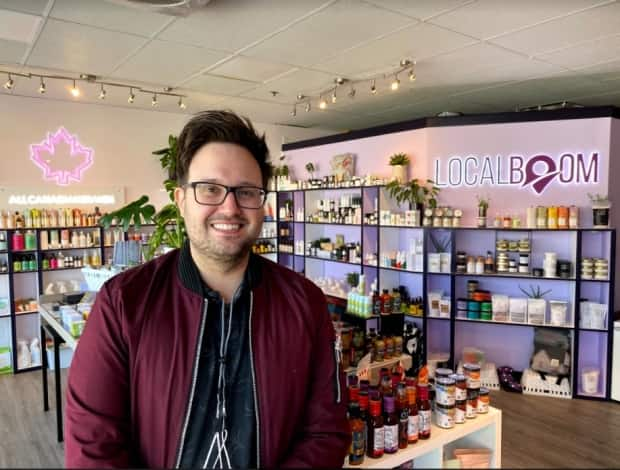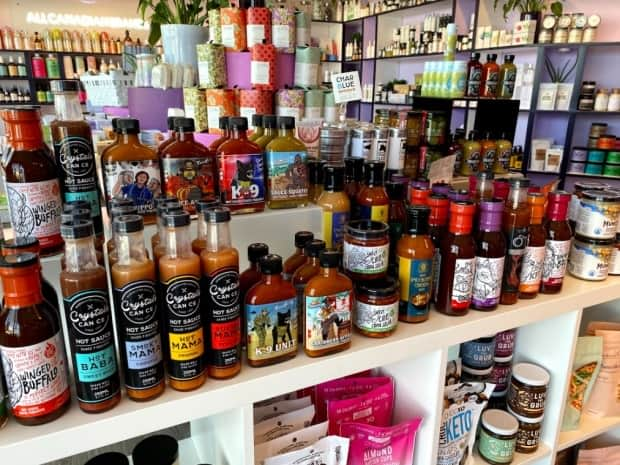Local businesses face extra challenges in toughing out the pandemic

When Stephen Kaboom signed his first lease on an East Vancouver storefront last year, he could not have foreseen the pandemic that was about to strike weeks later that would make running his new business an immensely difficult task.
Kaboom runs Local Boom which sells products from independent local producers including chocolate, skin care, candles, cleaning products and hot sauce. He says there have been some scary moments over the last year.
"There's been a few weeks where no one comes in," Kaboom said.
While Kaboom does have an online store that helps him squeak by, many local retailers are feeling the pinch.
Michèle Hamilton, the managing director of the initiative Support Local B.C., defines local businesses as homegrown businesses that started and don't have the benefit of a franchise behind them.

She says local businesses are essential to the economy and fabric of the community.
"The money that goes into a local business often recirculates within the community two to three times," Hamilton said. "They buy from local suppliers, they support local charities, they really are the cornerstone of what makes our communities unique and keeps them economically sustainable."
Hamilton said one issue that's come up during the pandemic is some are too small to qualify for the aid programs rolled out by the federal and provincial governments.
"They seem to be falling through the cracks when it comes to provincial and federal funding grants," she said. "They may not make enough to qualify for some of the grants. They might not have been in business long enough."
That's the case for Kaboom.
"I'm more of a microbusiness which the government kind of forgot about. There are a lot of businesses that are under five staff, or a small business or start-up business. This has been detrimental in a few ways with squashing entrepreneurialism a little bit because there's no support for that," he said.
While Kaboom has hopes for the future when the pandemic ends, Hamilton says consumers can help by shifting at least a little bit of their spending to local retailers. Support Local B.C. sells gift certificates for over 1,600 local B.C. businesses, and they've sold over $1 million worth.
"The idea was to shift 10 per cent of your current spending to local businesses, that would make a huge impact if everyone did that," she said.
"If you do need something, think about buying it at a local, independent business before you run out and get it somewhere else."
Listen to the segment on CBC's On The Coast:

